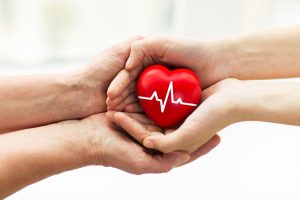Usually a donation is something we rarely think twice about; throwing some spare change into a charity tin, sponsoring your friend a fiver for a fun run or taking some unused clothes to your local second-hand store. Donations are an every-day occurrence that if we’re honest, don’t really have much meaning.
For someone like Jessica though, a donation could mean another chance at life.
“This time last year I was diagnosed with acute lymphoblastic leukaemia and I have been having treatment for it ever since, and I will do for a few years. Because of the way the leukaemia works, if it doesn’t respond to treatment then you have to have a bone marrow transplant. Once I hit the five-year mark, I’m in remission and I’m cancer free. If I was ever to relapse within the 5 years, I would need a bone marrow transplant.”
Bone marrow and organ donations are becoming increasingly popular as they provide a beacon of hope to patients who are not responding to treatment. Whilst the organ donor register is increasing, there are still not enough people on the database and too many patients are left without the possibility of the life-saving treatment. In fact, in Cornwall alone there were 46 deaths from the organ donation waiting list in the decade of 2007-2017.
For bone marrow transplants, it’s unlikely you will match with a relative for a donation, therefore there needs to be a push to get everybody registering. “There are people that I know that have got donors from all over the world, they have a huge database,” Jessica explained.
For her case in particular though, the biggest surge needs to be for young people signing up.
“It’s good to have somebody closer to your age range as well because after the age of 40 you can’t donate, so it’s better to have younger people. They look for young stem cells, young healthy stem cells, so that’s a big reason why young people should sign up for it more. You may never have to donate, but it’s good for them to have you on the database.”
Often people know from a young age that they’ll need an organ transplant in the future, so you’d think this would inspire more young people to sign up as donors, however as of February 2019, only 88,792 people under 26 years old are registered in Cornwall, compared to 185,844 over the age of 26, according to data provided by the NHS Blood and Transplant group. This is a huge difference and one teen believes young people need to eradicate this ‘you only live once’ attitude and think about the bigger picture.
19-year-old Azzizza Ulphana V. Alcular has pledged to be tee-total as well as maintain a healthy lifestyle improve the chances of her organs being donated once she passes away.
“What inspired me most is that I have the capability to save lives without the need to become a licensed medical practitioner.”
Whilst her motivation is sincere, it is one rarely shared by other teens: “I believe it’s more of the lack of knowledge about becoming a donor and also greatly influenced by the motto ‘You Only Live Once’. It’s a matter of one’s perspective in life. If we try to advocate this, perhaps it would be through seminars and school talks, to inspire the youth that there is more to life than just being here for a good time. We must give them a sense of purpose.”
Azzizza could be on to something here. Whilst asking youngsters to cut out drinking and smoking is a tall order, there is something in educating people about how much positive impact they can create by not even leaving their house to sign up to the organ donor register. Jessica talked about the psychology of thinking ‘oh someone else will do it so I don’t need to’ and it’s a mindset we all fall into by default. It’s time for young people to take action and make the decision to sign up to a cause that one day someone close to them may benefit from.
To sign up to the organ donor or bone marrow register apply online


